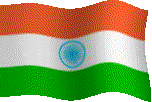

























|

|

|

|

|

|

|

|

|

|

|

|

|

|

|

|

|

|

|

|

|

|

|

|

|
|
|
|

|
|
|
MAHATMA GANDHI |
|
|
|
|
|
Mohandas Karamchand Gandhi was born in the town of Porbinder in the state of what is now Gujarat on 2nd October 1869. India at this time was under British rule, but was divided into Kingdoms and states that were allowed autonomous rule in domestic affairs. These states were referred to as "native-states". Gandhi got his schooling at Rajkot, one such state. His father was an advisor to the local ruler of Rajkot (the equivalent of a Prime Minister today). Gandhi's father died before he could finish schooling, and at the tender age of 13, he got married to Kasturba (younger than him). In 1888 Gandhi left for England to pursue a degree in law, promising his mother, a devout Hindu, to stay away from wine, women and meat during his stay abroad. After being called to the bar in 1891, and being enrolled in the High Court of London, Gandhi returned to India. After a lucklustre season in his legal career, Gandhi took up an offer from an Indian businessman in South Africa, Dada Abdulla, to join him as a legal advisor. The Indians living in South Africa were experiencing serious racial problems perpetrated by the European settlers there. Gandhi's first real encounter with such racism came at Pietermaritzburg, where he was thrown out of a first-class coach of a railway train eventhough he held a first-class ticket. From this point onward, Gandhi took up the Indian cause and came up with his world-famous Satyagraha ---non-violent resistance, a phenomenon he is still remembered for. Gandhi's legacy however was not purely political, but incorporated other important virtues like truth (satya) and celibacy (brahmacharya). Gandhi chronicled the plight of Indiansin South Africa in his book Satyagraha in South Africa. Gandhi returned to India in 1915 and as expected, continued to spearhead the Indian campaign against the oppressive British rule there. He was already a very respectable figure in India, but it was his selfless acts that earned him the title Mahatma, which is Hindu for Great Soul. Folowing a series of political unrests that resulted in loss of lives of unarmed Indians, Gandhi initiated the non-cooperation movement which basically called for a national boycott of the British Administration. His movement paralysed the British administration in India, and in 1922, he was arrested, charged with sedition and sentenced to six years imprisonment in the trial that was dubbed The Great Trial. Owing to poor health, he was released from prison in 1925. After his release from prison, Gandhi continued to pursue the Indian cause against the Europeans, but also decided to address another potentially explosive topic--the Hindu-Muslim relations in India. In 1930, the Indian National Congress began demanding nothing short of a purna swaraj (complete independence) from the British government. The British government did not take this seriously, prompting Gandhi to start the Salt civil disobedience movement. This movement was an attempt to interrupt or paralyse the monopoly the British had in the production and sale of salt. In the same year, Gandhi shifted his political base to a remote village by the name of Segaon right in the middle of India. This village, apparently with no running water or even electricity, became the meeting point between Gandhi and other interested parties in the political struggle. This gives you an idea of just how much Gandhi was respected by his colleagues in India. In 1942, Gandhi issued the last call for independence from the British. In his call he not only ordered the British to quit India, but urged fellow Indians to lay down their lives if necessary, in the cause of freedom. The British government responded by arresting Gandhi and the entire Indian National Congress leadership until after the end of World War II. The ageing Gandhi and his wife Kasturba were confined at the Aga Khan's palace in Pune, and it was during this confinement that Kasturba died. In the period that Gandhi was confined, the Muslim league grew more popular, with its leaders advocating for a separate Muslim state. This Hindu-Muslim tension resulted in a series of clashes in Calcutta, which Gandhi miraculously put an end to. He was very opposed to the idea of a religiously-divided India. He instead advocated a united India for all Indians, a position that earned him a lot of enemies from hardliners on both ends of the spectrum. India finally gained independence on August 15th 1947, with Gandhi conspicuously absent from the political light. Nehru and other prominent leaders at that time were however quick to salute Gandhi as the architect of Indian independence. Gandhi spent his latter years in India's capital Delhi. The Hindu-Muslim conflict which Gandhi fought so earnestly to resolve, would eventually prove too costly for him. On January 30th 1948, Gandhi was shot three times on the chest while proceeding to his evening prayers. Though Gandhi's ageing body succumbed to the bullets, his detractors will forever be ashamed by the shining spirit and legacy he left behind; a spirit that will live forever, and that distinguishes him as one of the true heroes of all time. |
|
|
Return to the Home Page |
|
|
Copyright©AfricanTribute.com Inc., 2002 |
|
|
|

|
|
|
|